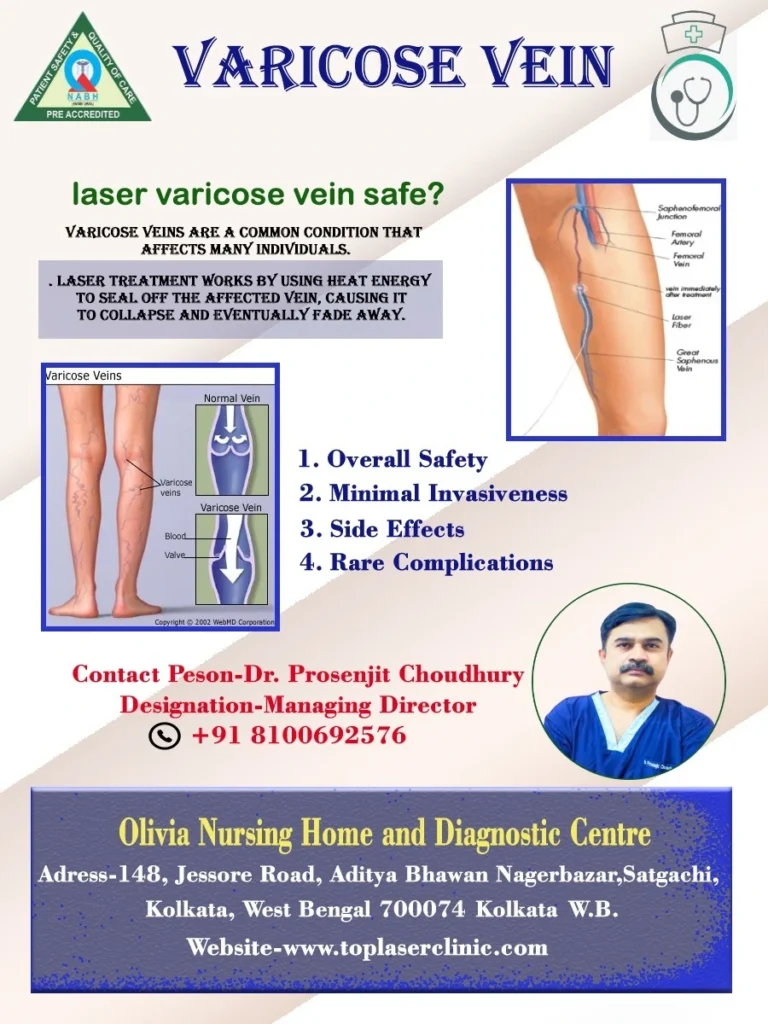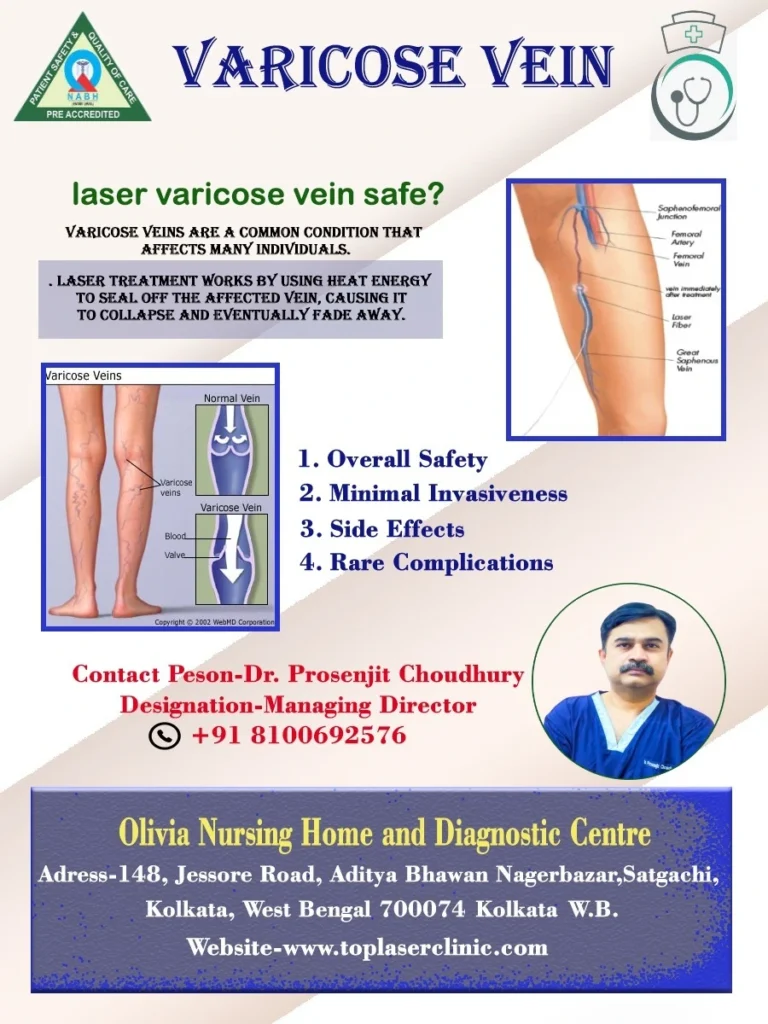
Is laser varicose vein safe?
Varicose veins are a common condition that affects many individuals. One of the treatment options for varicose veins is laser treatment, also known as endovenous laser ablation. Laser treatment for varicose veins is generally considered safe when performed by a qualified healthcare professional. Laser treatment works by using heat energy to seal off the affected vein, causing it to collapse and eventually fade away.
This minimally invasive procedure has shown to be effective in treating varicose veins and is widely used worldwide. Extensive research and clinical studies have demonstrated the safety and efficacy of laser treatment for varicose veins. EVLT, or endovenous laser ablation, is a safe and effective procedure for the treatment of lower-extremity varicose veins (Chung et al., 2022). It is important to note that like any medical procedure, laser treatment for varicose veins does carry some potential risks and side effects.
These risks can include minor complications such as pain, bruising, erythema (redness), hematoma (blood clot), hyperpigmentation (darkening of the skin), teleangiectatic matting (formation of fine red veins), and nerve injury. However, it is crucial to remember that these complications are relatively rare and typically resolve on their own over time. Furthermore, the overall safety of laser treatment for varicose veins has been found to be better than traditional methods such as vein stripping and ligation.
Laser treatment for varicose veins has a high success rate with occlusion rates of up to 95%. It is a versatile treatment option that can be used to treat various types of veins, including the great saphenous vein and short saphenous vein. Untreated varicose veins can lead to pain, thrombophlebitis, bleeding, chronic venous insufficiency, and venous ulcers.
Here are some key points regarding the safety of laser varicose vein treatment :

1. Overall Safety:
laser varicose vein treatment has been performed for many years with a good safety record. It is considered a safe alternative to traditional surgical procedures like vein stripping.
2. Minimal Invasiveness:
The procedure is minimally invasive, typically performed on an outpatient basis. It involves inserting a laser fiber into the affected vein through a small incision, delivering laser energy to seal the vein and redirect blood flow to healthier veins.
3. Side Effects:
Common side effects of varicose vein treatment may include bruising, swelling, temporary discomfort, and skin discoloration around the treated area. These effects are generally mild and temporary, resolving on their own within a few weeks.
4. Rare Complications:
While rare, there is a small risk of potential complications such as infection, nerve damage, blood clot formation, or skin burns. However, these complications are relatively uncommon.
Therefore, undergoing laser treatment for varicose veins can not only provide relief from symptoms but also help prevent potential complications. In conclusion, laser treatment for varicose veins is a safe and effective option for individuals seeking relief from the symptoms of varicose veins.